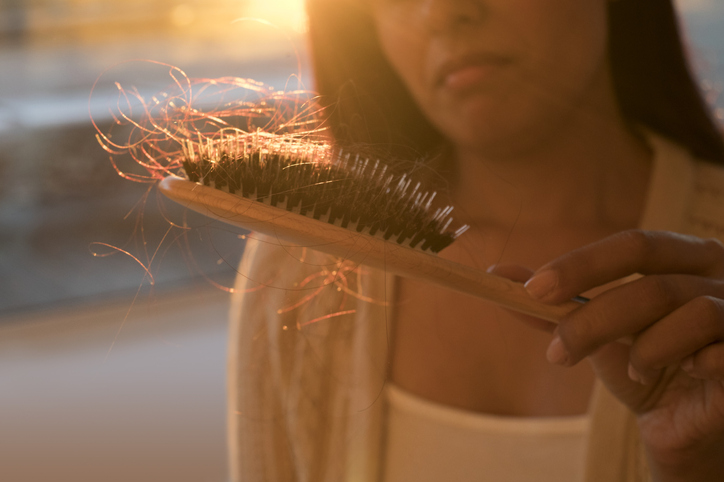
Source: SCIENCE PHOTO LIBRARY / Getty
According to the The New York Times, there have been more than 14 million reported cases of COVID-19 in the United States, and 199,988 new cases were reported across the country on Wednesday alone. At this point in the pandemic, we all know someone who has had the virus — those who’ve succumbed to it and those who’ve survived. In the latter group, there are those who are dealing with some lasting health issues, from serious long-term symptoms like decreased lung and kidney function, to those who have heart palpitations and depression. One less talked about effect of COVID-19 that a number of survivors are coping with is hair loss.
We spoke with Dove partner, dermatologist and hair wellness expert Yolanda Lenzy, MD, FAAD, who is helping the brand with promotion of their popular moisturizing Amplified Textures and Dermacare lines. She shared that in the same way people experience hair loss when coping with major physical changes, like pregnancy for example, people are losing their hair from the physical shock and trauma of having this virus in their bodies.
“We’re seeing a lot of people who actually had COVID-19 back in the spring, a few months later, they’re developing hair shedding. It’s actually called telogen effluvium,” she said. “It’s where you get excessive shedding after a major stressful event. So like having a baby, having illness, losing a lot of weight. I don’t know if you’ve ever known anyone who has had weight-loss surgery and they lost like 100 pounds in six months and then they lose a lot of hair. That can do it. Having surgery, going under general anesthesia, all of these things are major stresses to the body and you can go through excessive shedding.”
The good news is that though it can last a while, Dr. Lenzy says the hair loss usually comes to a halt. As she put it, “it peaks and then it starts to slow down.”
“Usually six to nine months is on average how long it lasts,” she said. “Every stressor to the body, it all causes the same type of hair loss: TE or telogen effluvium.”
Those who’ve made it through the debilitating virus aren’t the only people at risk for hair loss in this pandemic, though. Individuals who’ve gone through extreme stress during this time after having their lives turned upside down can also start to notice hair loss.
“A lot of people have lost jobs and family members. It’s been a tough time,” she said. “Just a lot of excessive stress alone, if it’s significant, that can produce the same type of effect in terms of causing your follicles to shift out of the growth phase into the shedding phase.”
Her recommendation for all is to prioritize giving their hair and overall bodies some extra tender love and care.
“Do really good self-care as much as possible during this time,” she said, recommending exercising, eating well and catching up on rest. “This is lasting much longer than a lot of people expected. We’re having to adjust to a new normal, so figuring out our hair care and skin care and all of that is important with this.”









